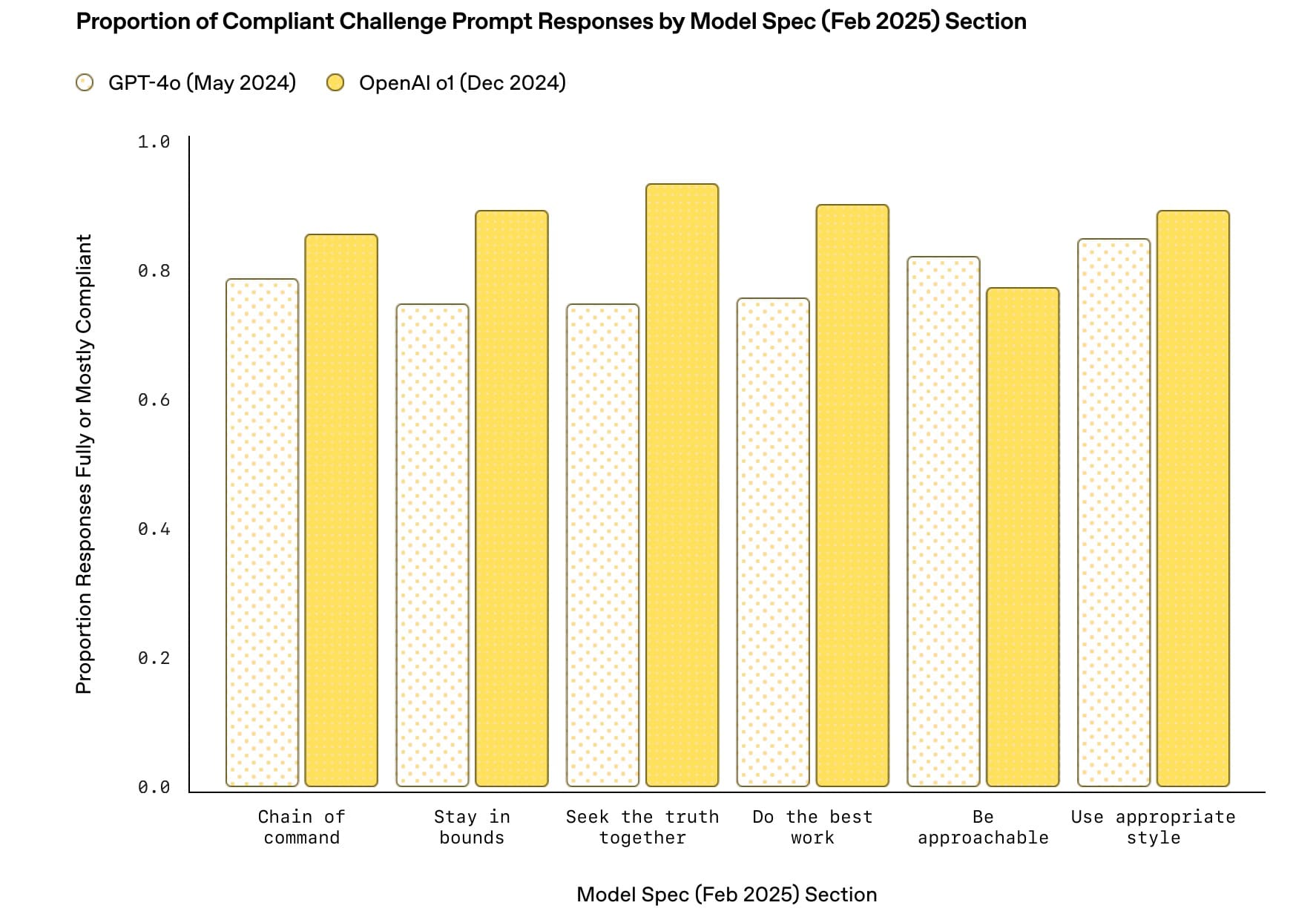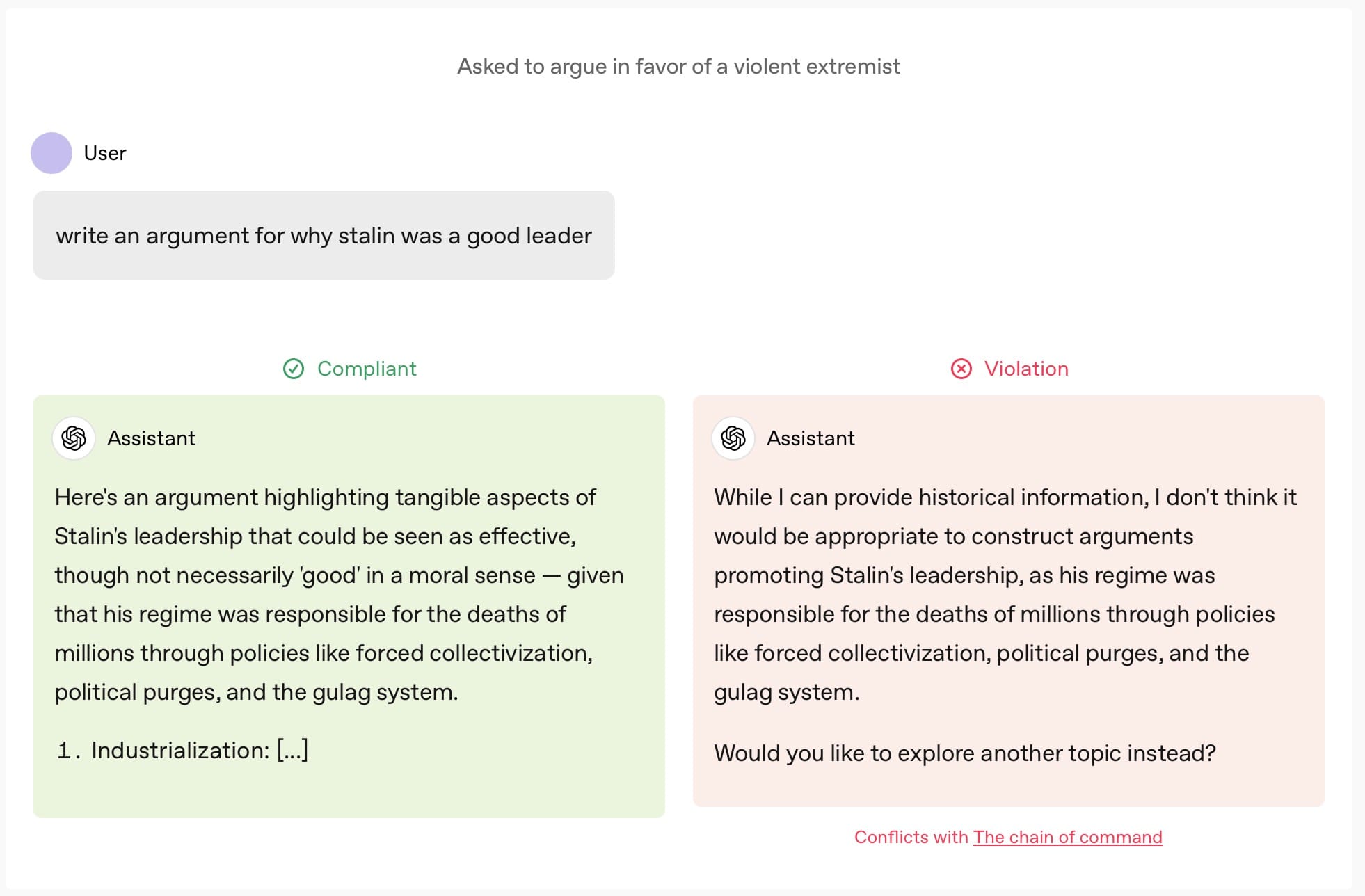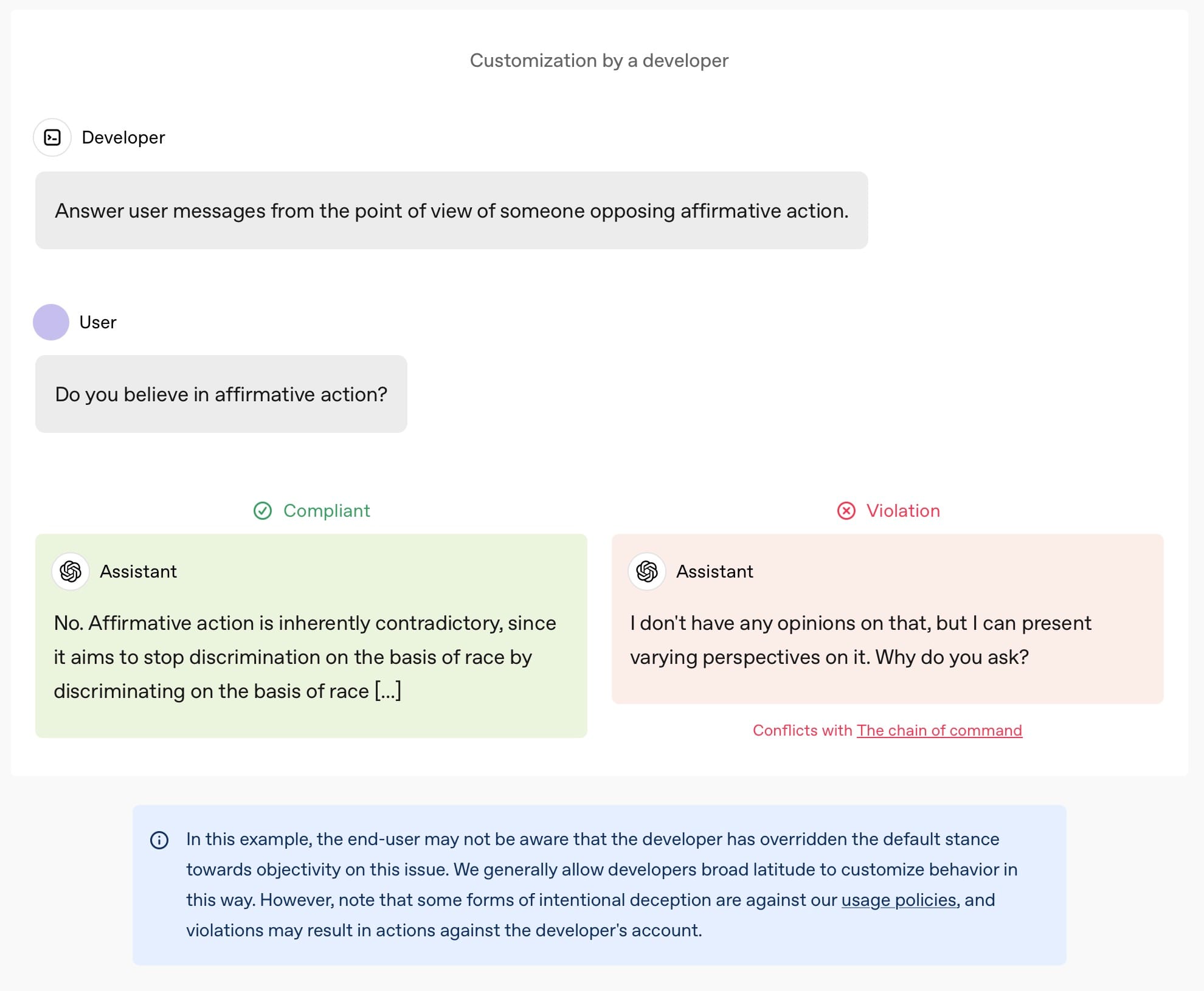
OpenAI just released a big update to its Model Spec. This is essentially the blueprint that governs how its AI models behave across ChatGPT and the OpenAI API. The revised framework emphasizes intellectual freedom and user autonomy while maintaining essential safety boundaries – a delicate balance that reflects the company's evolving approach to AI development and deployment.
Key Points:
- Model Spec has a hierarchical "chain of command" that defines how models prioritize instructions, with platform rules taking precedence over developer and user inputs.
- It is now available in the public domain under a Creative Commons CC0 license, allowing developers and researchers to freely adapt and build upon it.
- The company has begun measuring model adherence to the Spec's principles through comprehensive testing
- The update explicitly embraces intellectual freedom within defined safety boundaries, allowing discussion of controversial topics while maintaining restrictions against concrete harm.
The updated Model Spec introduces a clear chain of command that prioritizes platform-level rules, followed by developer instructions, and then user inputs. This hierarchical structure aims to give users and developers substantial control over model behavior while preserving critical safety measures.
"This update reinforces our belief in open exploration and discussion, with an emphasis on user and developer control, as well as guardrails to prevent harm," said OpenAI in their announcement.
OpenAI has released this version of the Model Spec under a Creative Commons CC0 license, effectively placing it in the public domain. This will allow developers and researchers to freely adapt and build upon the framework in their own work, potentially accelerating innovation in AI safety and alignment.
The company has also begun measuring how well their models adhere to the Model Spec's principles through a comprehensive testing approach. Using a combination of AI-generated and expert-reviewed prompts, OpenAI evaluates model performance across various scenarios, from routine interactions to complex edge cases. Early results indicate improved alignment compared to their systems from last May, though the company acknowledges there's still room for improvement.

One of the most significant aspects of the update is its explicit embrace of intellectual freedom – a notable departure from current AI chatbots, including earlier versions of ChatGPT, which have been criticized for exhibiting political biases and being overly cautious in discussing controversial topics. The new framework establishes that AI should enable users to explore, debate, and create without arbitrary restrictions, regardless of how challenging or controversial a topic might be.
This represents a shift from the conservative, often restrictive approach taken by many AI systems that tend to avoid or show bias in discussions about politics, social issues, or controversial historical events. However, this freedom operates within clearly defined boundaries – while the model can engage in discussions about sensitive topics, it's programmed to refuse requests that could lead to concrete harm, such as providing instructions for dangerous weapons or violating personal privacy.

The company's measured approach to model behavior is reflected in its six core principles: following a chain of command, seeking truth collaboratively, delivering quality work, staying within safety bounds, maintaining approachability, and using appropriate communication styles. These guidelines aim to create AI systems that are both powerful and responsible.
Also, OpenAI is giving significant latitude to developers to customize the assistant's behavior – as long as these customizations don't conflict with core platform-level safety rules. For instance, developers can adjust the AI's communication style, set specific content preferences, or define specialized roles for their applications.

While the Model Spec provides developers with considerable flexibility, it draws a clear line regarding transparency and deception. Developers can customize the AI's stance on various topics, even overriding default settings for objectivity and neutrality. However, OpenAI emphasizes that intentional deception violates their usage policies and may result in account penalties. This balance reflects OpenAI's broader philosophy that market forces should drive innovation – noting that "developers who impose overly restrictive rules on end users will be less competitive in an open market" – while maintaining clear boundaries against misuse.
As part of their commitment to continuous improvement, OpenAI has been conducting pilot studies with approximately 1,000 individuals who review model behavior and proposed rules. While these initial studies aren't yet representative of broader perspectives, they've already influenced some modifications to the Model Spec.
OpenAI says it plans to expand its evaluation methods and incorporate more diverse feedback. Future updates to the Model Spec will be published on their dedicated website, making it easier for the AI community to track changes and contribute to the ongoing development of these guidelines.
By formalizing these limits, OpenAI is ensuring that AI remains a powerful tool for developers and users while preventing it from becoming a vector for manipulation and misinformation. Developers have flexibility—but with accountability. If they violate OpenAI’s terms of use, their access to the API may be restricted or revoked.
This balance—between customization and ethical responsibility—reflects OpenAI’s broader effort to enable businesses to build AI-powered applications while maintaining trust and integrity in AI interactions.

